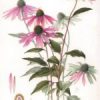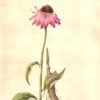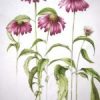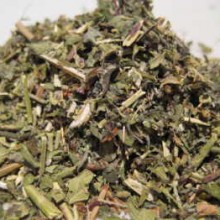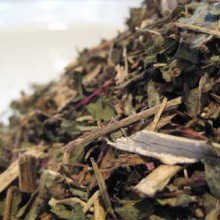Echinacea Root (augustifolia) commonly called Narrow Leaf Coneflower, is a genus of nine species of herbaceous plants in the Family Asteraceae. All are strictly native to eastern and central North America but have now been naturalised all over the temperate world. The plants have large showy heads of composite flowers, blooming from early to late summer. It is also known as Red sunflower, Hedgehog, Indian head, Comb flower, Scurvy root
Purpurea is known a Purple Coneflower and pallida is known as Pale Leaf Coneflower
Uses of Echinacea Root:-
Echinacea Root is popularly believed to stimulate the body’s immune system and ward off infections, particularly the common cold. There is, however, no evidence to suggest this at all and it is more a case of folklore rules or the triumph of hope over expectation that has fostered this belief.
It is a natural antibiotic though and Echinacea Root is used to treat infections and to combat low resistance to sickness & to enhance the immune system. This is probably where the preventative cold and flu belief originates.
Echinacea Root has been used in the treatment of chronic recurring vaginal yeast infections. Echinacea augustifolia, called ‘King of the blood purifiers’ in some herbal manuscripts, has also been traditionally used to help acne, boils and difficult skin conditions where there is some evidence to suggest that its efficacy is well deserved. It has a slight numbing effect that is useful in the treatment for the discomfort of cold sores, and it is also considered to help with the symptoms of the Herpes simplex virus.
Some suggest the use of adaptogens like Mountain Grape and Goldenseal considerably inceases this herb’s effect which has some basis for its premise in practise.
The tincture or a strong decoction of Echinacea Root help with stings and insect bites by reducing the discomfort.
Cautions
If you suffer from an auto immune condition like HIV Aids or Rheumatoid arthritis then you should not use any echinacea product without consulting a medical professional or qualified herbalist in the first instance.


